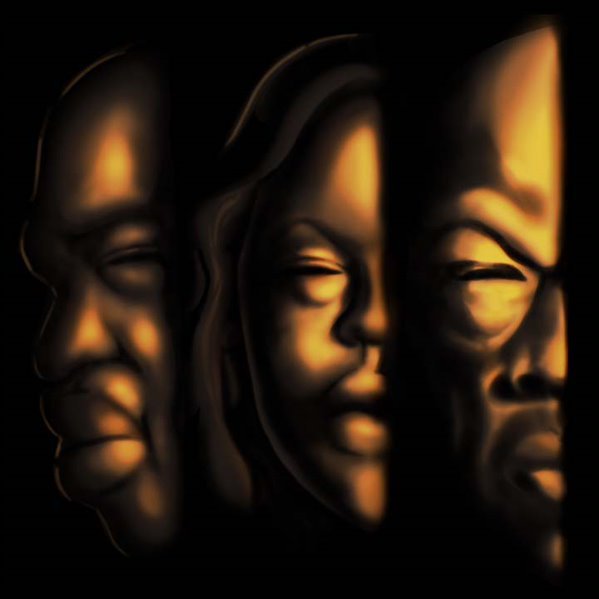On November 24, 2021, three white men were found guilty of murdering 25-year-old unarmed Black man Ahmaud Arbery. The murder was committed by the three white men after unfounded suspicions that Mr. Arbery had been committing break-ins in their neighborhood in South Georgia.
The three defendants were Travis McMichael, 35, his father, Gregory McMicheal, 65, and William Bryan, 52, their neighbor.
Mr. Arbery lived outside of the small town of Brunswick, Georgia with his mother. He enjoyed staying in good shape and was a jogger who was often seen running in and around his neighborhood. Mr. Arbery was shot dead in a suburban neighborhood known as Satilla Shores through which he was jogging.
On Sunday, February 23, 2020, Arbery was murdered after being provoked by a white man and his son. Gregory McMichael saw Mr. Arbery running in Satilla Shores from his front porch and believed Mr. Arbery looked like a suspected man involved in numerous break-ins in the area. He then called to his son, Travis McMichael.
The police reports state that “the men grabbed a .357 Magnum handgun and shotgun, got into a pickup truck and chased Mr. Arbery, trying unsuccessfully to cut him off. A third man was also [William Bryan] involved in the pursuit.” In a recording of a 911 call that was made before the chase began, a neighbor reported a Black man was inside a house still under construction.
A video shot by William Bryan shows a struggle that preceded three shotgun blasts. The video is about a half-minute long and shows Mr. Arbery running along the two-laned suburban road when he comes upon a white truck. Travis opens the driver’s side door with a shotgun, and Greg, his father, is in the bed of the pickup truck with a handgun.
Mr. Arbery then runs out of frame, and muffled shouting is heard before Mr. Arbery appears back in the video’s view. Mr. Arbery and Travis enter view of the camera recording, fighting outside of the truck as three shotgun shots echo.
Mr. Arbery then tries to run but stumbles and falls after a few steps.
There was another video published that depicted a man walking into a house that was under construction in the same neighborhood, with him eventually running out. S. Lee Merritt, one of Mr. Arbery’s family’s lawyers, released a statement that the video does not reveal anything that was not already understood evidence. Merritt continues by explaining that Mr. Arbery was not engaging in illegal activity and did not take anything from the site.
Gregory McMichael is a former Glynn County police officer and past investigator with the local district attorney’s office.
Two months passed after the shooting, and still, no one had been arrested for the murder of Ahmaud Arbery. The prosecutor for the Brunswick Judicial Circuit, Jackie Johnson, recused herself from the case because of a potential conflict of interest. Gregory, one of the men involved in the shooting, had previously worked in her office.
The case was sent to George E. Barnhill, the district attorney in Waycross, Georgia, who also later recused himself from the case. This came following Mr. Arbery’s mother arguing the point that Barnhill had a point of conflict as well because his son also worked for the Brunswick district attorney. Before he was released from the case, Mr. Barnhill did write a letter to the Glynn County Police Department arguing there was not adequate probable cause to arrest the pursuers of Ahmaud Arbery.
In December, the Atlanta news station WSB attained police body camera footage from when officers arrived on February 23, including the conversations that took place immediately following the shooting. These recorded conversations show that the officers on the scene knew of Gregory’s background.
Ms. Johnson, who was voted out of her job as chief prosecutor for the area, was indicted with a charge of violating her oath. This came about from her demonstration of “favor and affection” to Gregory. There was also a charge of obstruction due to her instructions to two police officers on February 23 to not arrest Travis.
During the eventual lead prosecutor in the case, Linda Dunikoski’s, closing statement, she argued that the defendants began a pursuit after and an attack on Mr. Arbery, “because he was a Black man running down the street.” This raised her question of whether race was a leading issue in the attack. The prosecution continued to argue to the jury that Mr. Arbery posed no imminent threat to the men and that they had no reason to believe he had caused such suspected crimes, a tactic that proved effectual due to the guilty verdict by the jury.
The case and trial have been carefully followed in the United States since the earlier April conviction of white officer Derek Chauvin for the second-degree murder of George Floyd. Video from the scene depicted Chauvin kneeling on the neck of unarmed Black man George Floyd for nearly nine minutes. This video generated an international uproar, placing an emphasis on questions about the unfair treatment that minorities endure at the hands of the police in America.
The three defendants face sentences of up to life in prison for the state crimes that were committed. They had each separately been indicted on federal charges that include hate crimes and attempted kidnapping. They are expected to stand trial for those charges in February.






